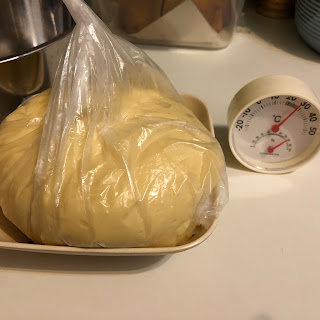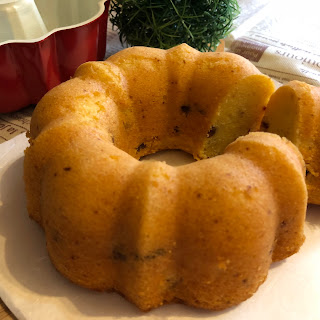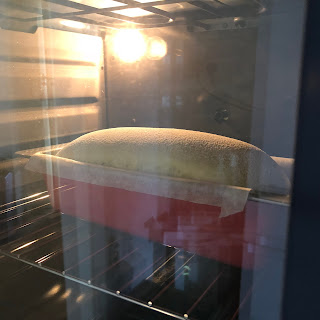A soft loaf of sweet bread, which carries the sweet aroma of the honey used. Herman Starter was used as the main leavening agent in this recipe :)
Bread maker: Mayer MMBM12
Raw dough weight: 543g
Pan size: 26x10x7.5cm narrow base
Baking temperature: Starting from cold oven, progressively increase the temperature from 120°C to 160°C by 10°C at 10 minutes interval. Finally, bake at 170°C for 5 minutes or till the crust becomes golden. At lower rack of the oven.
Ingredients
30g water25g milk
1 egg, 55g omega egg
35g honey
3g fine salt
25g rice bran oil
225g Prima bread flour
25g Prima top flour
100g active Herman Starter, 6th day after cultivation
1g instant dry yeast
Directions
1. Stir active Herman Starter and use it after it has doubled in volume, about 2 to 3 hours.2. Add all the ingredients following the sequence listed into a bread maker. Select "C-11 Ferment Dough" and start the program.
When the countdown timer reads "0:45" stop the program.
Transfer the dough to a slightly oiled plastic bag. Squeeze out most of the air, and tie a loose knot at the end. Let the dough stand in room temperature for about 1 hour. Double protect the dough with a second plastic bag, and keep in a covered container before sending to the fridge for overnight cold fermentation. About 10 to 14 hours of cold fermentation.
3. In the next day, invert the dough and let it thaw for about 1 hour.
4. Turn the dough onto a floured work top, deflate the dough, roll flat into a round dough. Fold in the 4 sides towards the centre, turn over and let it rest for 15 minutes.
5. Roll the dough into a flat long dough.
Flip over and roll the dough up. Seal at the end and place the dough into a loaf pan coated with a thin layer of butter.
Spray some water over the dough.
Cover with a tea cloth and let it proof for about 2 hours,
or till the dough rises to the rim of the loaf pan.
6. Dust a thin coat of bread flour over the top of the dough before scoring. Scoring is optional.
End of baking
8. Transfer the bread out of the oven.
Slice the bread after it has completely cooled down. Enjoy 😋







































































